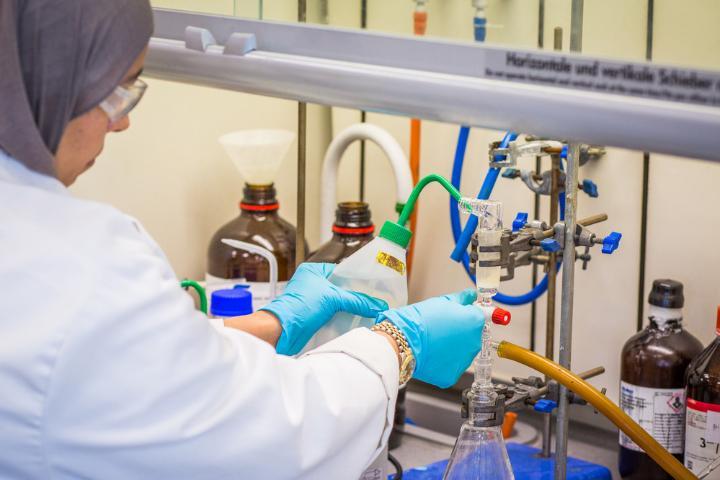Materials Chemistry
Materials Chemistry is the section of Materials Science and Engineering that investigates the chemical nature of materials. This is a fast-growing and highly interdisciplinary area with very flexible boundaries. The diverse nature of materials arises from their atomic composition and their complex molecular structures, which are organised over many different length scales. The resulting intricate micro- and nanostructures lead to striking physical properties, such as electrical, optical and mechanical behaviour, which are of both scientific and technological importance. Such materials range from the everyday (concrete, glass, aluminium) to those used in aerospace, microelectronics and medicine.
Materials chemistry impacts on a wide range of societal challenges including:
- Communications and information technology
- Advanced manufacturing
- Materials efficiency
- Environment and climate change
- Healthcare
- Biotechnology
- Renewable and sustainable energy
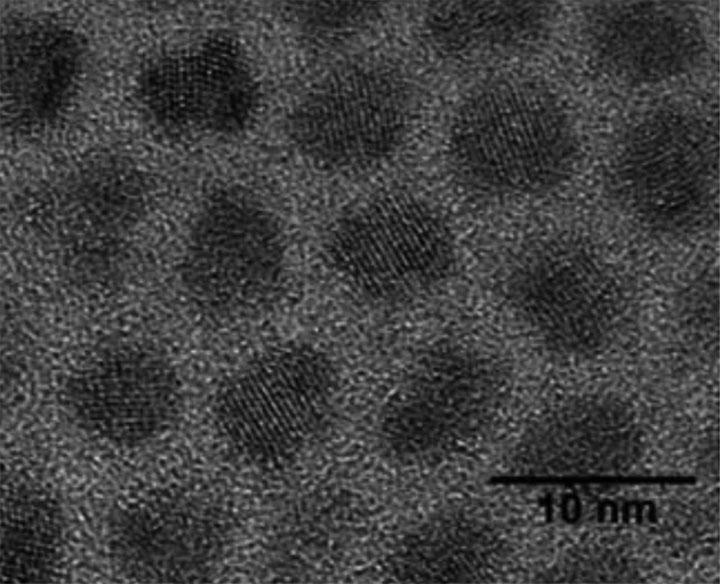
Crystal Engineering
The crystal structure of a material determines a wide range of physical properties such as solubility, bioavailability and colour.
For example, the effectiveness of a drug is dependent on the crystal form used. As molecules can exist in a variety of different crystal forms (e.g. polymorphs, salts, co-crystals), a range of properties is possible for a given compound. Research in crystal engineering focuses on understanding the molecular level processes that control the crystal growth of different crystals and how to use this knowledge to design and create new materials with desirable properties.
This involves a combination of experimental (crystallisation, crystal structure determination, property measurements) and computational studies (calculation of intermolecular interactions, prediction of crystal environment effects, interactions of molecules with crystal surfaces).

Functional Materials
Our materials researchers in the University of Bradford are preparing a range of new materials for a range of applications. These include Metal-Organic Frameworks (MOFs) – a promising new class of material that could be used as gas storage, carbon capture, separation, catalysis and drug delivery.
Our group at the University of Bradford has been working with inorganic materials for some time. Our particular interest in this area is in developing MOFs with high stability that can lead to different practical applications. Biomimetic clusters: Polynuclear cluster complexes are ubiquitous in nature and play key roles in many active centers in different enzymes. We are interested in developing biomimetic complexes for catalytic water-splitting reactions. Molecule-based magnets: We are interested in synthesis and magnetic studies of polynuclear complexes of paramagnetic metal ions. They often show interesting magnetic properties, and can behave as single-molecule magnets (SMM) depending on the magnetic interaction between different metal ions. SMM is a class of materials, which may lead to development of very high-density data storage devices.
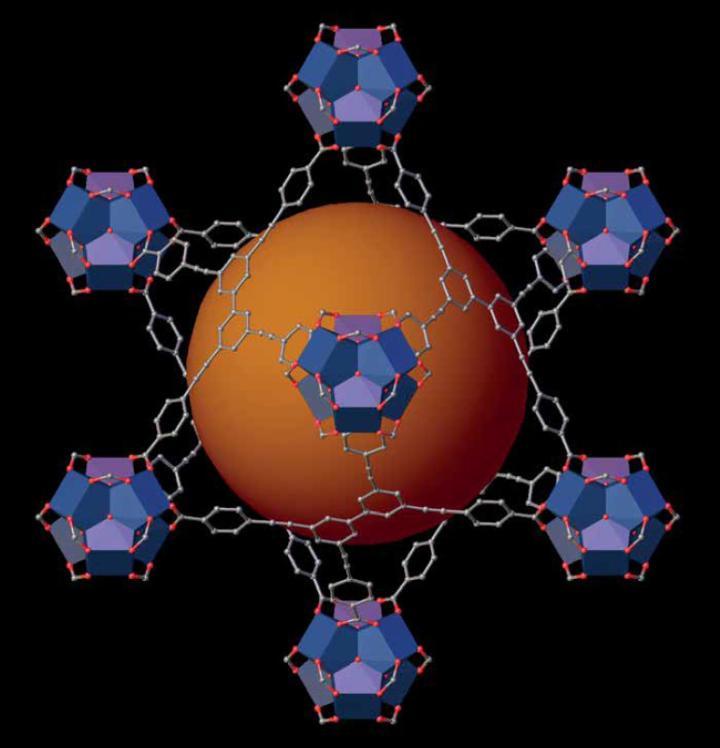
Nanoscience
The quest to explore the world at the nanoscale and uncover its secrets is a driving force behind many new and fascinating discoveries within the last decade. Special properties are associated with “small” (nanometer sized) materials thus properties can be “tuned” through size control. For example, on the right we can see cadmium selenide (CdSe) quantum dots of different sizes, ranging from the smallest sizes on the left (green) to largest sizes on the right (red).
It is important that new nanomaterials can be intelligently designed, synthesised and manipulated to achieve their full potential across a range of applications. Research in the School of Chemistry and Biosciences is focused on synthesising, modifying, characterising and testing devices composed of a wide range of nanomaterials (metals, metal oxides, binary and ternary component semiconductors), chemical modification of surfaces so that they can be placed into a range of device architectures and design of new nanomaterials. A significant portion of the research effort has gone into making solution-based nanomaterials for clean and efficient energy conversion (photovoltaics and thermoelectrics for efficient generation), as well as probing their electronic structure and seeing how charges move through such systems.
Other research is focused on the development of the next generation of nanomaterials for drug delivery and medical applications. The development of advanced drug delivery systems can improve existing drugs’ therapeutic efficacy, alleviating their side effects, and hence reduce costs. The aim of this research is to create a new generation of nanomedicines with targeted release properties, and to develop nanomedical applications to treat and diagnose diseases, and provide better imaging. The strategy is to collectively apply materials chemistry, physical chemistry, analytical chemistry and medicinal chemistry to precisely control the size, morphology, surface, composition and structure of nanomaterials.
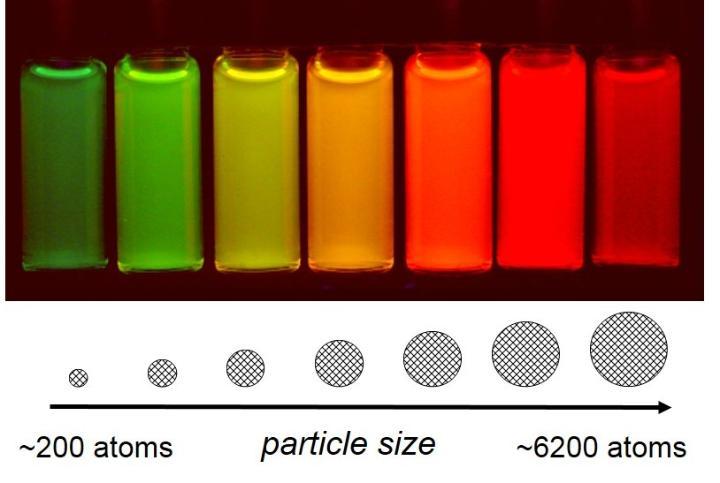
Polymers
Our work is focused on the synthesis, characterisation and properties of functional polymers.
We have good collaborative relationships with large sections of the polymers and biomedical devices industry. Functional polymers are produced using a variety of methods including radical, cationic and ring-opening polymerisations, as well as step-growth techniques such as polyurethane synthesis. We also make extensive use of reactions in disperse media; such as emulsion polymerisations. We work closely with the Polymer IRC Advanced Materials Engineering and Polymer Micro and Nano Technology RKT Centres in the Faculty of Engineering and the Centre for Chemical and Structural Analysis (Analytical Centre) in the Faculty of Life Sciences to incorporate new polymers into advanced materials.
Our recent research has been to produce biologically functional hydrogels to support cells for applications in tissue engineering, to create medical sensors to help clinicians make informed decisions, and develop new methods of studying and characterising these materials.
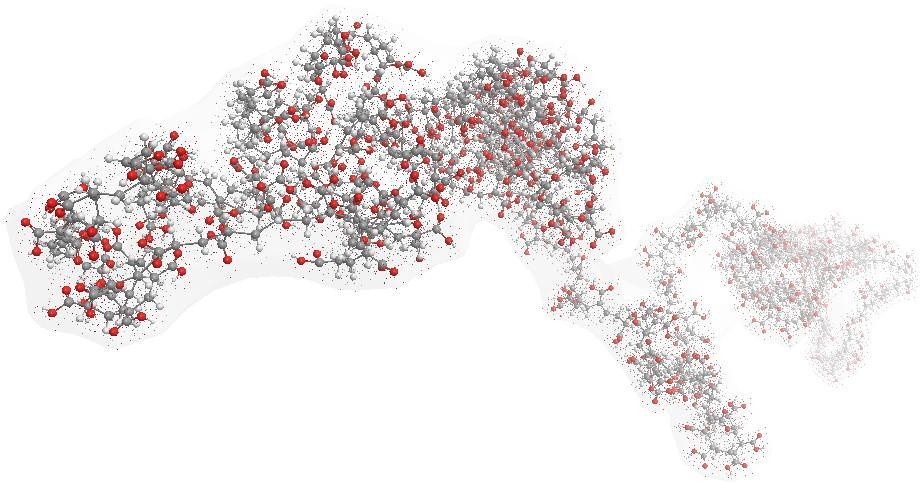
Computer simulation of poly(acrylic acid)
Postgraduate research opportunities in Materials Chemistry
The Materials Chemistry group are highly involved in the development and day to day implementation of the MSc in Materials Chemistry, which is taught here in the School of Chemistry and Biosciences.
This course provides a firm grounding across a range of materials chemistry related topics including Supramolecular Chemistry and Nanosciences, Polymer Chemistry and Inorganic Materials. This course has a full year long research project, with your chosen academic, embedded within it and is an excellent way of getting hands-on training in materials chemistry alongside the taught material.
The materials research group are always looking to work with, and inspire, young scientists with fresh ideas. If you think we can assist you to develop your skills please contact one of us and let us know that you are interested, either through entering the MSc in Materials Chemistry programme for students with a science bachelors degree or, for anyone further advanced, we offer a range of exciting PhD proposals.
Apply here to enrol, or alternatively, why not view our full range of Chemistry degree programmes where many of the modules from this programme may also be studied.
